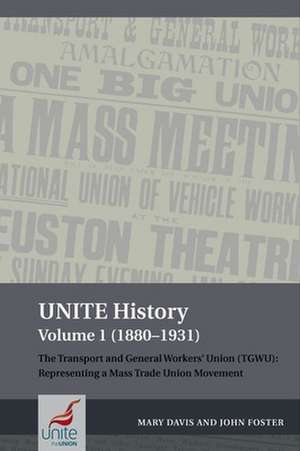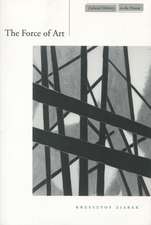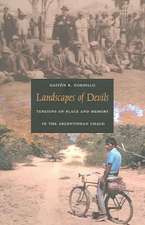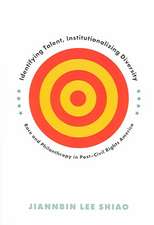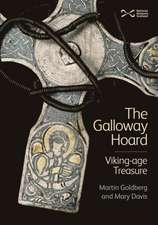UNITE History Volume 1 (1880–1931) – The Transport and General Workers` Union (TGWU): Representing a mass trade union movement
Autor Mary Davis, John Fosteren Limba Engleză Paperback – 30 iun 2021
attitude to the conflict between capital and labour. This first volume (1880-1939) covers the formation of the TGWU. It was rooted in an era in which, starting in the 1880's, a mass trade union movement was formed. The drive to amalgamate the unions was spearheaded by Ernest Bevin and resulted in the creation of the TGWU, 1920-22 - a period which
witnessed an intensification of pre and post WW1 militancy. Such militancy continued, albeit unevenly until 1926 and was met with resistance from employers and the State culminating in the mighty confrontation of the General Strike. Politically the union had a close relationship with the Labour
Party and its two minority Governments (1923-4 and 1929-31). The defeat of 1926 marked a watershed in British labour history in which, again, the TGWU played a key role. Trade union militancy was succeeded by an attempt at negotiated accommodation with the employers, known as 'Mondism'. Bevin was
central to this development.
Preț: 132.92 lei
Nou
Puncte Express: 199
Preț estimativ în valută:
25.44€ • 27.20$ • 21.21£
25.44€ • 27.20$ • 21.21£
Carte disponibilă
Livrare economică 28 martie-11 aprilie
Preluare comenzi: 021 569.72.76
Specificații
ISBN-13: 9781800859715
ISBN-10: 1800859716
Pagini: 176
Dimensiuni: 153 x 234 x 10 mm
Greutate: 0.27 kg
Editura: Liverpool University Press
ISBN-10: 1800859716
Pagini: 176
Dimensiuni: 153 x 234 x 10 mm
Greutate: 0.27 kg
Editura: Liverpool University Press
Notă biografică
Mary Davis is a Visiting Professor of Labour History, Royal Holloway, University of London and Secretary for the Marx Memorial Library. John Foster is Emeritus Professor, Social Sciences, University of the West of Scotland.
Descriere
The history of the TGWU is the core of this collection, with a significant emphasis on the union's regions, as well as several key themes, such as equality, internationalism, the wider labour movement, and its attitude to the conflict between capital and labour.
